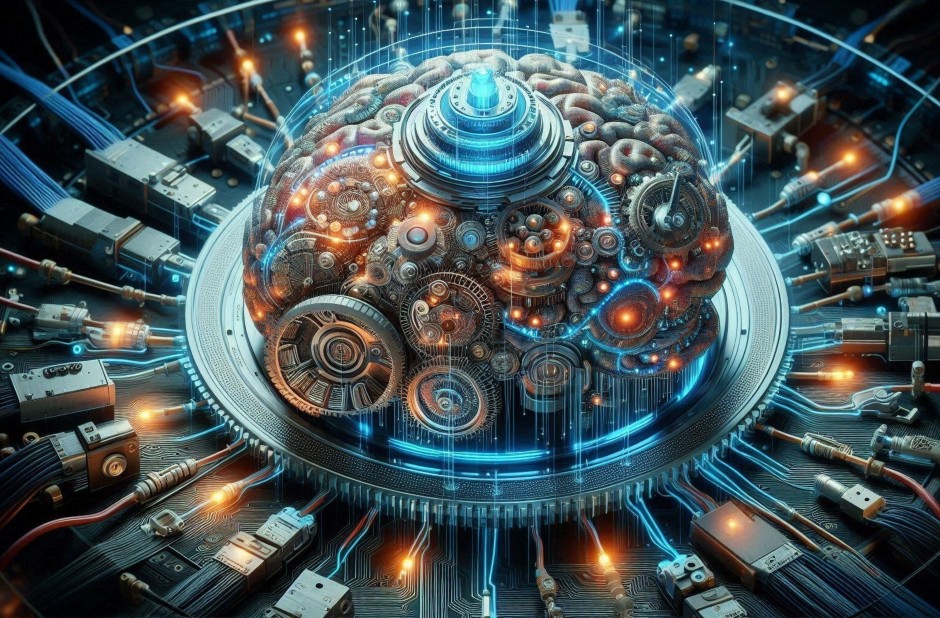In recent years, there has been a significant advancement in the field of Artificial Intelligence (AI) and Augmented Reality (AR). These technologies have become increasingly popular and have the potential to enhance virtual experiences in various fields such as gaming, education, healthcare, and...
Artificial brain solved a problem scientists struggled with for 50 years

In one of the most remarkable scientific breakthroughs of the 21st century, an artificial intelligence system has successfully solved a biological puzzle that has confounded researchers for five decades. Google DeepMind's AlphaFold has cracked the protein folding problem, demonstrating how artificial neural networks can achieve what traditional computational methods could never accomplish.
The 50-Year Challenge
Proteins are the fundamental building blocks of life, present in every living organism. These complex molecules consist of long chains of amino acids that fold into intricate three-dimensional structures. The shape of a protein determines its function, making structure prediction crucial for understanding biological processes, designing drugs, and treating diseases.
Since the 1970s, scientists have struggled with the "protein folding problem" - predicting how a protein's amino acid sequence determines its final 3D structure. Traditional experimental methods like X-ray crystallography and nuclear magnetic resonance could determine protein structures, but these techniques are expensive, time-consuming, and labor-intensive. A single protein structure could take years to solve and cost hundreds of thousands of dollars.
The Artificial Brain Solution
DeepMind's AlphaFold represents a revolutionary application of artificial intelligence to biological science. The system uses deep learning neural networks trained on over 170,000 known protein structures from the Protein Data Bank. Unlike previous computational approaches that relied on physics-based modeling, AlphaFold employs:
- Attention networks that focus on identifying parts of the folding problem
- Evolutionary analysis examining related protein sequences across species
- Spatial graph modeling treating folded proteins as networks of connected amino acids
- Transformer architecture similar to large language models but adapted for protein structure
Unprecedented Accuracy
In the 2020 Critical Assessment of protein Structure Prediction (CASP14) competition, AlphaFold achieved remarkable results. The system predicted protein structures with a margin of error of just 1.6 angstroms - roughly the width of an atom. This level of accuracy matches laboratory techniques for the first time in computational history.
The AI scored above 90 on CASP's global distance test for approximately two-thirds of the proteins tested, where 100 represents a perfect match with experimental data. For the most challenging proteins, AlphaFold's lead over the next best method was 25 points - a massive improvement from the 6-point lead achieved in 2018.

Revolutionary Impact on Science
AlphaFold's breakthrough has already transformed multiple fields of biological research. The system has predicted the structures of over 200 million proteins - nearly every catalogued protein known to science. This represents work that would have taken hundreds of millions of researcher-years using traditional methods.
Medical and Drug Discovery Applications
The implications for medicine are profound. Researchers are now using AlphaFold predictions to:
- Accelerate drug development by understanding how medications interact with target proteins
- Design new antibodies for therapeutic applications
- Investigate disease mechanisms at the molecular level
- Develop treatments for previously "undruggable" protein targets
Professor Andrei Lupas from the Max Planck Institute reported that AlphaFold's predictions helped solve a protein structure his team had been stuck on for nearly a decade, relaunching their research into cellular signal transmission.
Environmental and Agricultural Benefits
Beyond medicine, the technology promises breakthroughs in environmental sustainability and agriculture. Scientists are exploring applications including:
- Engineering enzymes that break down plastic waste
- Developing crops with improved nutritional content and yields
- Creating biological systems for renewable energy production
- Designing synthetic proteins for industrial applications
The Next Generation: AlphaFold 3
In 2024, DeepMind released AlphaFold 3, expanding beyond single proteins to predict interactions between proteins and other biomolecules including DNA, RNA, and various drugs. This advancement shows at least 50% improvement in accuracy compared to existing methods for molecular interactions, with some categories showing doubled precision.
The new system introduces the "Pairformer" architecture and diffusion models, making it the first AI system to surpass physics-based tools for biomolecular structure prediction without requiring prior structural information.
A New Era of AI-Driven Discovery
AlphaFold's success represents more than solving a single scientific problem - it demonstrates artificial intelligence's potential to accelerate fundamental research across disciplines. The breakthrough validates DeepMind's founding vision that AI can dramatically advance human knowledge and scientific discovery.
As Demis Hassabis, DeepMind's CEO, emphasized, the achievement moves beyond games and entertainment to tackle real-world challenges that benefit humanity. The protein folding solution has become a proof of concept for AI's transformative potential in science, inspiring similar approaches to other long-standing research problems.
The artificial brain that solved biology's 50-year puzzle has opened new frontiers in our understanding of life itself, promising a future where AI and human intelligence work together to unlock nature's deepest secrets.



